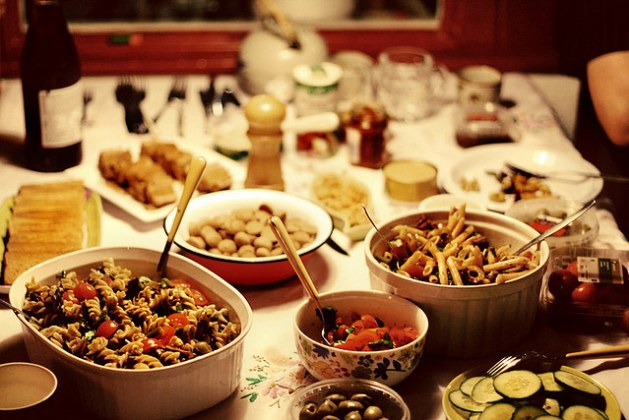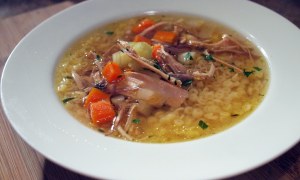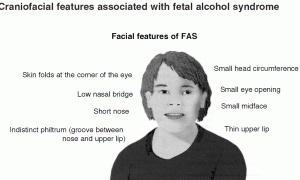
When people hear of someone who doesn’t eat meat or dairy products, there is an almost automatic assumption the person must be vegetarian or has a food allergy to dairy products. In reality, someone who doesn’t obtain their protein from animals or animal products could in fact be a vegetarian or a vegan. The two are often confused, but as dietary behaviors they have distinct differences.
Fundamental Difference Basics
Both vegetarians and vegans focus on plant-produced foods as the primary diet staples of their food. However, while vegetarians may shun meat per se, they will still eat products produced by animals, such as dairy products. Vegans take a clear non-animal product direction in not just their diet but in their lifestyle. This includes clothing, materials, products, tools and consumables.
The Vegetarian Diet
As noted earlier, any kind of direct meat consumption is avoided in a vegetarian diet. This includes sea animals, such as shellfish, and poultry. Additionally, meat-based products are avoided as well, including gelatin, sausage, and meat flavoring. The diet is predominantly vegetables as the core food source, but protein can be obtained from eggs as well as cheese and yogurt. This is primarily a food and health approach to eating, and generally vegetarianism is not highly focused on a social or political position.
Because the vegetarian diet is predominantly driven by what people want to eat, there are different variations in practice. Some people focus on eliminating certain foods altogether, while others will eat anything that is not a direct meat source. There are no hard and fast rules aside from the meat consumption parameter.
The Vegan Diet
As a vegan, a person is committing to a way of life versus just a consumption restriction. The vegan diet is simply one part of a greater social position and commitment by a person; it just happens to be one of the most obvious outward signs of being a vegan. Fundamentally, the vegan is committed to protecting basic life, including that of animals. As a result, anything from an animal, either as a direct product or produced from an animal, is avoided. Food-wise, the vegan’s choice of food technically wipes out natural consumption of the B12 vitamin which comes from animal protein. As a result, the vegan has to take a supplement to replace the deficiency.
How Both Vegetarian and Vegan Diets Stack Up Health Wise
There is no question that over consumption of meat in the Western world is associated with heart disease, diabetes, and obesity. In fact, statistically, non-meat eaters have a far higher chance of living longer versus their carnivorous counterparts. As much as a 1 in 5 chance greater probability – or 19 percent.
The study that backs this conclusion was not a small-time college review either. It was supported and independently tested for publication in the Journal of the American Medical Association. The results were based on watching the health habits of over 73,300 vegetarian subjects. The vegetarians studied also had a lower incidence of kidney failure as well as diabetes. However, cancer was not affected by the diet choice; subjects were still at risk to cancer at the same rate as meat-eaters.
On the rebuttal side, some will argue the above report was skewed. The vegetarians studied tended to exercise more, drank less alcohol and avoided smoking. So other factors could be involved in their better health.
Maybe, but the rebuttal still doesn’t dissuade from the fact that a high meat consumption, particularly red meat, has been scientifically confirmed as the cause of artery clogging and heart disease as well as weight gain. It can also cause gout, which has been known for centuries, especially by sailors who did not have ready access to vegetables on the high seas in old times.
In Summary
Vegetarianism and veganism both agree on one thing – people should rely less on animals for direct food sources. In this regard, both lifestyles may very well be making smart sense. With processed food and meat product pricing rising heavily each year, modern society may need to start shifting its food preferences back to plant-produced food again.
Regardless of other social statements, both vegetarianism and veganism as a food and diet practice make common sense when other food sources are starting to become harder to obtain with price inflation.
What do you think is best, being a vegetarian, a vegan or something else?




Leave a comment
You must login or register to add a new comment.